When Xtra West made its debut in Vancouver during the summer of 1993, historian Ron Dutton, the long-time archivist of the BC Gay and Lesbian Archives, was conflicted.
“It was nice to have a second news outlet who was looking at the queer community from different aspects and angles than we had previously been seeing,” he says.
However, Dutton had concerns that the new arrival might not prove to be as political or responsive to community needs as previous gay and lesbian publications. There had been other gay newsletters and newspapers in Vancouver, but they were largely volunteer-run and lacked stable funding.
Author Stan Persky, who had written for Xtra’s predecessor, The Body Politic, in the 1970s, understood the need for Xtra’s brand of journalism.
“I think everyone recognized that it was time for a change in approaching the gay community and writing for the gay community,” he says. “The idea was to present something that was more pop and more immediate and less think-piecey.”
Dutton has stayed close to Xtra over the years, often ushering its reporters and editors into the archives for fact-checking and background information.
“I like Xtra a lot,” he says now. It’s a “consistent voice in the community.”
***
Spencer Chandra Herbert, MLA for Vancouver-West End, was still in the closet the first time he thumbed through the pages of Xtra West in the mid-1990s.
“In high school, I remember surreptitiously taking a peek here and there. Although it was always private, because I didn’t want to let anybody know I had any interest in it,” he recalls.
“It certainly was exciting that there was another world out there.”
It was one of his first glimpses into a world of people who weren’t afraid to be themselves in a very public way.
“There was a community of people who were out — and who they were in all their wild diversity — and they were appearing in a paper, and it was as normal as any other thing.”
Chandra Herbert says that Xtra West’s later coverage of the Surrey school board ban on gay books and gay-straight alliances in the late 1990s and early 2000s helped him come out both as a gay man and as an activist.
“It was me and a few folks going to Surrey school board meetings. I was following along [with] many of our queer heroes. Xtra was there and pushed the mainstream media to cover the issue and helped spread understanding because of that.”
Chandra Herbert didn’t speak out publicly at those meetings but remembers an encounter afterward, in a parking lot, with the then-chair of the Surrey school board — and current BC MLA and minister of transportation — Mary Polak.
“She had no interest or understanding of the issue and just shrugged it off,” he says. “That to me was definitely one of the moments that made me realize that if we want change we have to actually act and not just complain, but get involved.”
Getting involved became a recurring theme for Chandra Herbert: as a community activist, as a parks board commissioner and for the past four years, as a provincial MLA.
***
Writer and poet Billeh Nickerson started contributing to Xtra West in 1998. Now a creative writing instructor at Kwantlen Polytechnic University, he says the experience also helped him feel connected to the community.
“I was just happy that they had this voice and that we had that space. It was a very different time,” he says. “We see Xtra boxes all around the city now, but at the time it felt like it was a political act just having our voice, our own paper.”
Nickerson saw Xtra West as an integral mirror of the local queer community, both as a writer and a reader. He remembers waiting for each new issue every two weeks, to see whose face would be on the cover.
“I love that kind of montage, of seeing your friends or new people who would soon become your friends, first seeing them on the cover of Xtra West.”
The added visibility was also important.
“We had to have our own voice in that, as opposed to some other media outlets, which quite frankly, I don’t think cared or gave the same attention to detail that Xtra had,” Nickerson says.
“Whether we’re celebrating or whether we’re acknowledging an injustice or a tragedy, at least I felt like that was our space.”
***
Tragedy came in November 2001 when Aaron Webster was brutally murdered near the gay cruising trails in Stanley Park.
The following day a sea of thousands of mourners marched down Davie Street in near silence, in the biggest gay protest Vancouver had ever seen.
The headline on Xtra West’s cover: “Enough! Gay community roars over violence.” That issue, every news story related to the Webster murder and the community’s subsequent calls to action.
Dutton sees the Webster murder as a turning point for Vancouver’s gay community, comparing it to the attention brought by the Matthew Shepard case in the United States.
“It brought together a lot more diverse peoples within the community to protest against this,” he says.
“For the broader society it really brought it home for the first time just how vulnerable gays and lesbians are out there in the world. There’s always been stories in the Sun and Province about the occasional mugging, but they could be viewed as isolated cases by most people, when it doesn’t directly affect them. This case was so big and the community response was so assertive.”
Persky remembers the demonstrations and the organized pressure on the police and government.
“Both the [media] coverage and the call to arms was quite successful,” he notes.
“It was quite successful both in terms of alerting people but mainly successful in making a dent in institutions that were supposed to deal with and protect citizens, who were gay, just like everyone else.”
Chandra Herbert was in Victoria at the time but still felt the aftereffects.
“It resulted in our community really coming together in a way that you don’t see that often,” he recalls. “The media can reflect the best in our community but also the worst that we’ve had to deal with. In ugly times, that can certainly provide inspiration in those dark moments.
“I remember coming up to the front steps of the legislature, where there was a candlelight vigil; not a massive crowd, but certainly a community of people,” he says. “I didn’t know any of them, but all of a sudden, we all knew each other in that moment.”
Already an activist working on homophobia in schools, he felt inspired to do more.
“To have a story like this come out and the community pull together connected to a lot more people who I never knew before,” he says. “I don’t think it’s too far to say [it] spurred me on to more vocal and more consistent advocacy for equality.”
***
Shaun Hunter Mclean wasn’t born when Xtra West made its debut 500 issues and almost 20 years ago.
She doesn’t recall the image or the headline that drew her attention, but she can still remember the excitement she felt when she first saw it two years ago.
In 2010, Mclean had just begun to discover her sexuality. Then a Grade 10 student from the suburbs, she was accompanying a friend to a youth drop-in at Qmunity in downtown Vancouver for the first time.
“I happened to see this [Xtra] box and I just went, ‘Why have I never heard of this?’ I grabbed five copies, ’cause I thought, ‘Oh my god, I’m never going to find this again,’” she recalls.
Mclean eagerly handed them out to her friends at the Langley fine arts high school she attended.
“I felt like it was something that was new and I was trying to spread it around, ’cause I was so excited,” she says.
When Mclean moved to rural BC for her senior year of high school in September 2011 and encountered homophobia, she reached out to Xtra for support.
Xtra published an article about her shock and the gay-straight alliance (GSA) she subsequently helped revitalize, which further inspired Mclean and her fellow students to lobby her new school district for an anti-homophobia policy, modelled after the version passed by Burnaby in 2011.
Even away from Vancouver, Mclean says she still feels connected to the larger activist community when she reads Xtra. She and other students print out stories they find compelling and post them on the GSA bulletin board for others to read.
Mclean and her friends are still waiting to hear whether their school board will act on their concerns and adopt an anti-homophobia policy, but either way they intend to keep pushing for change. In the last year, the Smithers Secondary GSA has more than doubled its membership, up to nine students, from the previous record high of four.
Mclean attributes the attention and increased support from faculty and students partially to the article Xtra published.
“It really did a lot for getting people aware of the fact that they’re not the only ones — they’re not the ones that have to be hiding.”
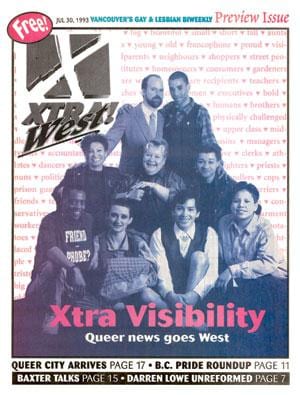
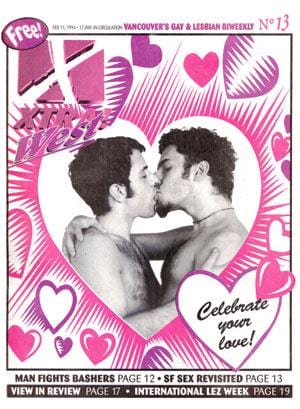
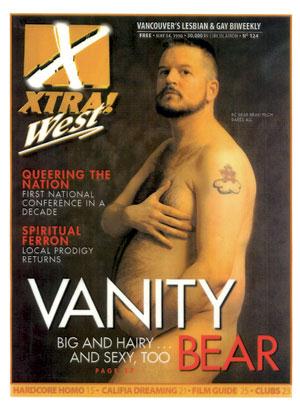
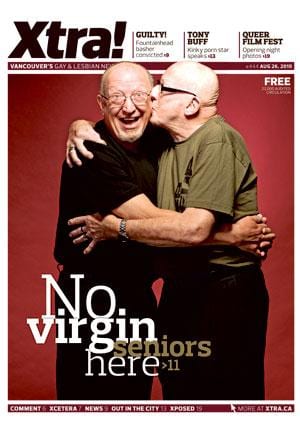
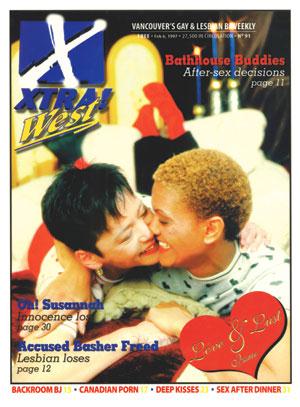
 Why you can trust Xtra
Why you can trust Xtra


